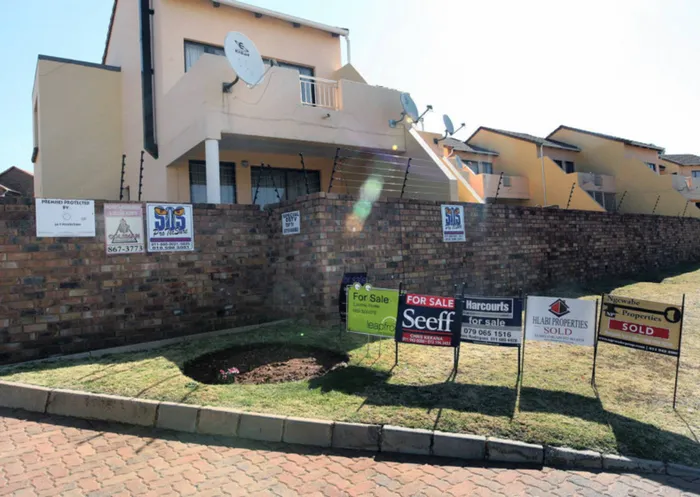How SARB and the US Fed interest rate decisions boost South Africa's property market

Investors are encouraged to take advantage of the current buyer's market to invest in income-generating properties. The already thriving rental market is likely to continue its upward climb, even amidst economic shifts.
Image: Simphiwe Mbokazi
Both interest rate decisions by the South African Reserve Bank (SARB) and the US Federal Reserve System (the Fed) offer encouraging signals for the local property sector.
A hold from the SARB keeps funding costs intact, while the Fed’s move should help global liquidity conditions, says Justin Davidson, a stockbroker at Anchor Capital.
"Local REITs, many of which are already reporting strong operational performance, are benefiting from this period of interest-rate stability. For the broader economy, stable rates support investor confidence and are positive for long-term sector positioning."
On Thursday, the Monetary Policy Committee (MPC) announced that interest rates will remain unchanged at 7% (repo rate) and the prime lending rate at 10.5%.
“The MPC decided to keep the policy rate unchanged, at 7%, with four members preferring to keep rates on hold, while two favoured a cut of 25 basis points.
“Since September last year, we have reduced rates by 125 basis points, and we want to see how this is affecting the economy, how expectations evolve, and how inflation risks are resolved,” said Lesetja Kganyago, the governor of the South African Reserve Bank.
SARB Independence
Davidson says while the SARB sets policy independently, the Fed’s recent move toward easing has certainly softened the global rates narrative.
He says that, however, the SARB remains more conservative in its stance, given South Africa’s higher inflation risk premium and delicate fiscal position. The Fed’s stance may give the SARB more room to cut later, but for now, domestic conditions called for a prudent approach, he adds.
He adds that the SARB’s decision to hold the repo rate steady reflects a measured and evidence-based stance amid an uncertain global and domestic backdrop.
"With July’s inflation print of 3.5% year on year (y/y) at the bottom end of the SARB’s 3% to 6% target range, the MPC had scope to remain on hold while monitoring upside risks. The decision was widely expected and reaffirms the SARB’s commitment to price stability."
Going forward, the entrepreneurial wealth & asset management business says the stability of rates offers a degree of planning certainty for prospective buyers and existing homeowners. For the property industry, a flat or easing rate environment could support transaction volumes, it says.
Rate-cutting cycle pause
The Nedbank economic team says that inflation will rise further away from the SARB’s preferred 3% anchor, which led them to expect that the MPC would pause its rate-cutting cycle and wait for more data to assess the underlying nature of the current upturn in inflation.
"If Nedbank were advising SARB, it would lean toward holding this meeting but signalling that the option for another modest cut is open, contingent on continued disinflation, stable expectations, and no adverse external shock."
“Predictability is a powerful tool in today’s economic environment,” says Craig Mott, National Sales Manager for the Rawson Property Group. “When rates are stable, it gives buyers and sellers the confidence to act with clarity, rather than hesitation.”
He says that while inflation remains within the SARB’s target range, broader economic indicators paint a more complex picture. "Business confidence has softened in recent months, affected by new international tariffs and ongoing logistical challenges at South Africa’s ports and railways."
According to Leonard Kondowe, national manager at Rawson Finance, these factors reinforce the SARB’s cautious approach.
“There are real global and local pressures at play, and the SARB is wisely choosing to hold the line rather than make a premature move,” says Kondowe. “That’s the kind of financial leadership that protects both homeowners and the broader economy.”
Despite a subdued global growth forecast and continued structural challenges at home, both Kondowe and Mott are optimistic about South Africa’s property market.
“We’re seeing a shift toward more mature, strategic decision-making,” says Mott. “It’s not a boom cycle, but it’s not a bust either. It’s a market that rewards preparation, good advice, and long-term thinking.”
Kondowe adds that there’s still a significant opportunity for those who plan ahead.
“Interest rates may be neutral for now, but that doesn’t mean the market is standing still,” he says. “This is the time to get financially ready, explore your options, and position yourself to move when the time is right.”
Resilience
South Africans are extremely resilient and, even if this pause is just the beginning of what many economists expect to be a prolonged halt in interest rate cuts, Chris Tyson, CEO at Tyson Properties, says that property owners have every reason to be positive if they compare this September to September 2024.
Although acknowledging the relief that rate cuts offer to stressed households, Tyson continues to urge property owners to budget wisely and repay mortgages at an existing slightly higher level whenever possible to reduce the overall repayment period.
Independent Media Property
Related Topics: